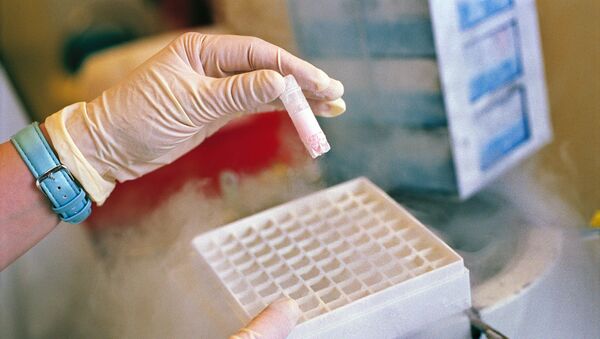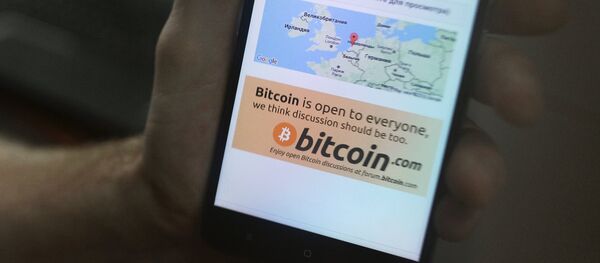New Delhi (Sputnik) — India's apex medical research regulatory authority has banned the commercial banking of stem cells derived from biological materials other than umbilical cords. The step is a major setback to companies that offered to store the cord tissue, placenta, tooth extracts and menstrual blood for a price.
The Indian Council of Medical Research (ICMR) has argued that there has been no evidence to substantiate the clinical benefits of stem cells derived from such sources.
"At present, there is no scientific evidence to substantiate clinical benefits with the use of stem cells derived from cord tissue, placenta, tooth extracts, adipose tissue, dental pulp, menstrual blood and olfactory ensheathing cells etc. Yet, the procurement and banking of these biological products are increasingly becoming a commercial activity," ICMR said in its latest guidelines.
"As of now, only umbilical cord blood (UCB) banking is permitted and licensed by the Central Drugs Standard Control Organization (CDSCO). Accordingly, the commercial banking of all other biological materials (except UCB) is not permitted until further notification," the guidelines added.
Meanwhile, companies engaged in the commercial banking of stem cells have questioned the ICMR decision.
"The decision to recommend a ban on the banking of stem cells from cord tissue, menstrual blood and other biological sources is very unfortunate and totally overlooks the potential contribution of stem cells in research and development. Though today, applications of these are restricted, research and advanced clinical trials across the globe on these products have been demonstrating significant progress. It is only a matter of time when these stem cells could become treatment solutions for many disorders that have very few other options for treatment," Mayur Abhaya, CEO and managing director of LifeCell, said.
The preservation of cord tissues and other sources of stem cells has been prevalent in many countries, especially within the Western world, considering advancements in medicine.





